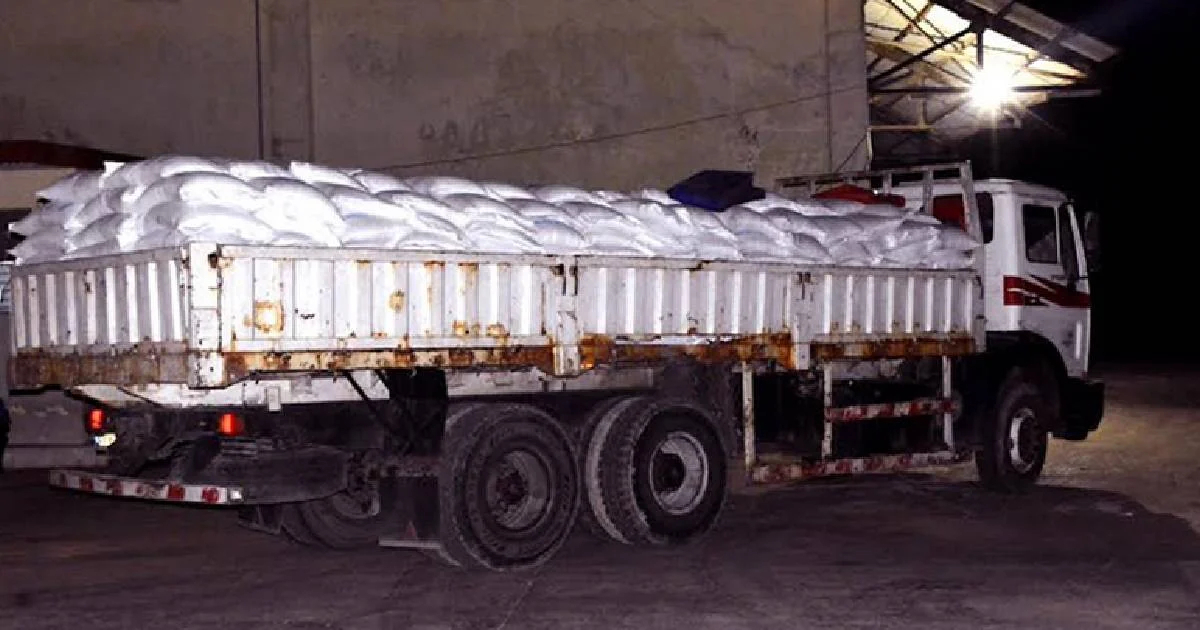Despite the insufficient national food production, the lack of foreign currency for export, and a fuel crisis affecting transportation, the Cuban regime has stated it will maintain the rationed family basket, even while acknowledging the scarcity of resources. “Almost all the products in the family basket need to be imported, and this is the priority when allocating foreign currency for investment,” said Prime Minister Manuel Marrero Cruz in remarks reported by the state-run digital site Cubadebate.
During the work of the Attention to Services Commission, prior to the third regular session of the tenth legislature, Marrero emphasized the importance of the basket, which, “despite its shortcomings, is an achievement that will be maintained.” He also noted that distribution “has faced timing stability issues because financing is not obtained in a timely manner.”
It is worth recalling that at the beginning of July, residents of Holguín received the overdue rice that the government owed them from June. A similar situation occurred throughout the eastern region of the island. Since 2022, dependence on imports has increased to ensure products, as the participation of national production of rice, beans, eggs, milk, and other foods has decreased.
Marrero Cruz also addressed the recent price cap on six basic products, a measure aimed at preventing sustained price increases. He acknowledged that products in MLC stores can be more expensive than in SMEs because they are not imported from the same countries, and he affirmed that TRD will take measures regarding this issue.
Meanwhile, the Minister of Internal Trade, Betsy Díaz Velázquez, also spoke about the delays but did not offer a substantial solution: “This situation must be better communicated to the people, and territorial communication is indispensable.”
In June, Cuban leader Miguel Díaz-Canel reiterated the critical notion of "continuity," emphasizing that the responsibility for meeting citizens' basic needs lies with local governments, not the leaders controlling the centralized and planned economy of the communist regime.
The Cuban government does not seem to find a solution to the issue of food and the basic basket in the island nation. While now loudly proclaiming that they will maintain this “achievement,” the deposed former Minister of Economy, Alejandro Gil Fernández, stated in December that “it is a distortion that we have to correct.”
“There is the issue of the rationed family basket. Our population holds the opinion that we are maintaining the subsidy for all people equally. However, not all people have the same level or purchasing power,” said the official on the state television program Mesa Redonda, which was dedicated to the new measures the government is pushing after the failure of the so-called “Tarea Ordenamiento.”
“This is a matter we need to review because this intention to maintain a level of product assurance at highly subsidized prices is not currently equitable or fair when you examine it closely,” he added.
Gil lamented the “high cost of maintaining that rationed family basket for the country.”
“It costs us 1.6 billion, 700 million more to import the same amount of products we imported in 2019,” said Gil, who is reportedly detained on corruption charges.
Key Issues Surrounding Cuba's Rationed Family Basket
This section addresses common questions and answers regarding the Cuban government's continued efforts to maintain the rationed family basket amid resource shortages and economic difficulties.
Why is the Cuban government struggling to maintain the rationed family basket?
The government is facing challenges due to insufficient national food production, lack of foreign currency for imports, and a fuel crisis affecting transportation.
What measures has the government taken to address these issues?
The government has implemented a price cap on six basic products and is working on better communication strategies, but substantial solutions have yet to be presented.
How has the dependence on imports affected the rationed family basket?
Since 2022, the reliance on imports has increased due to decreased national production of key foods like rice, beans, eggs, and milk, leading to distribution delays and higher costs.
